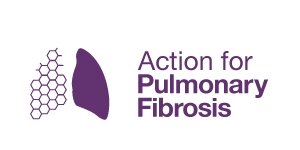How to protect yourself from COVID-19
COVID-19 is a new illness that can affect your lungs and airways. It is caused by a virus called coronavirus. Anyone can catch COVID-19 if they have been in contact with someone carrying the virus.
Patients at high risk from Covid-19 include
(i) people over 70 years of age
(ii) people with a pre-existing condition such as chronic respiratory disease, heart disease, diabetes or hypertension,
(ii) people on immunosuppression and some other medicines
All pulmonary fibrosis (PF) patients should consider themselves to be extremely vulnerable from coronavirus (COVID-19).
Guidance to avoid infection with COVID-19
EU-IPFF with support of our Scientific Advisory Group has prepared the following guidance. It is based on information provided by Action for Pulmonary Fibrosis, UK with generous support of Galapagos and will help you avoid becoming infected with coronavirus.
If you are a pulmonary fibrosis patient self-isolating alone or with your partner
You are strongly advised to stay at home at all times and avoid face-to-face contact with others. Home is the safest place for you. You can open a window or go into the garden but, if you do, keep a safe distance from neighbours
Strictly avoid contact with anyone who is displaying symptoms of coronavirus (COVID-19). These symptoms include high temperature above 37.8 ºC and/or new and continuous cough
Do not attend any gatherings. This includes gatherings of friends and families in private spaces such as family homes, weddings and religious services
Do not go to your doctor’s surgery or to the hospital - all contact with heath care professionals should be by phone, internet or video conference
Ask for deliveries of food or medications to be left at the door to minimise contact. Be vigilant and wipe anything coming into your home with disinfectant. The virus can live for three days on plastic or metal surfaces and one day on cardboard or paper
Keep in touch with family and friends using the phone, internet and social media
Tips on self-isolation can be found here.
Note:
Please read the official advice given in your country and consult information published by your national pulmonary fibrosis patient organisation (Please find links here). The period of time for which you will need to self-isolate will vary from country to country.
Individuals who have less than six months to live or some others in special circumstances, may decide not to follow the advice.
If you live with other people who are not self-isolating
If you share your home with others, you will reduce your risk of catching COVID-19 if you:
Keep 2 metres (3 steps) away from other family members, sleep on your own and use separate towels and a separate bathroom, if possible.
Keep shared spaces such as kitchens, bathrooms and sitting areas well-ventilated and minimise as much as possible the time other family members spend in these areas.
Clean any shared bathrooms every time they are used and try to use the kitchen at different times. Family cutlery and crockery should be washed well. Use a separate tea towel for the cutlery and crockery you use.
Get everybody in the house to wash their hands frequently (20 secs with soap), avoid touching their faces and clean frequently touched surfaces.
If you are caring for somebody with pulmonary fibrosis
There are simple steps you can take to reduce the risk from COVID-19 for those you are caring for:
Only provide care that is essential – do not make unnecessary visits or longer visits than necessary
Wash your hands when you arrive and often during your visit, using soap and water for at least 20 seconds or use hand sanitiser.
Cover your mouth and nose with a tissue or your sleeve (not your hands) when you cough or sneeze. Put used tissues in the bin immediately and wash your hands afterwards.
Do not visit or provide care if you feel unwell - make alternative arrangements for their care instead.
Provide information on who they should call if they feel unwell – how to access urgent medical advice or emergency services
Look after your own well-being and physical health at all times
If you are self-isolating and you need help with food, medicines and essential supplies
It is important to seek help with the delivery of food, medicines and essential services and supplies, and for support with your physical and mental health and wellbeing.
Across Europe, governments, businesses, charities, and the general public are gearing up to help people who are extremely vulnerable to Covid-19 and have to stay at home. If you do not know who to contact, try your local council or pulmonary fibrosis patient organisation. You can also ask family, friends and neighbours to support you.
Your usual support from health and social care organisations should continue as normal. Your health or social care provider will be asked to take additional precautions to make sure that you are protected.
Steve Jones
EU-IPFF Board Member
13th April 2020



